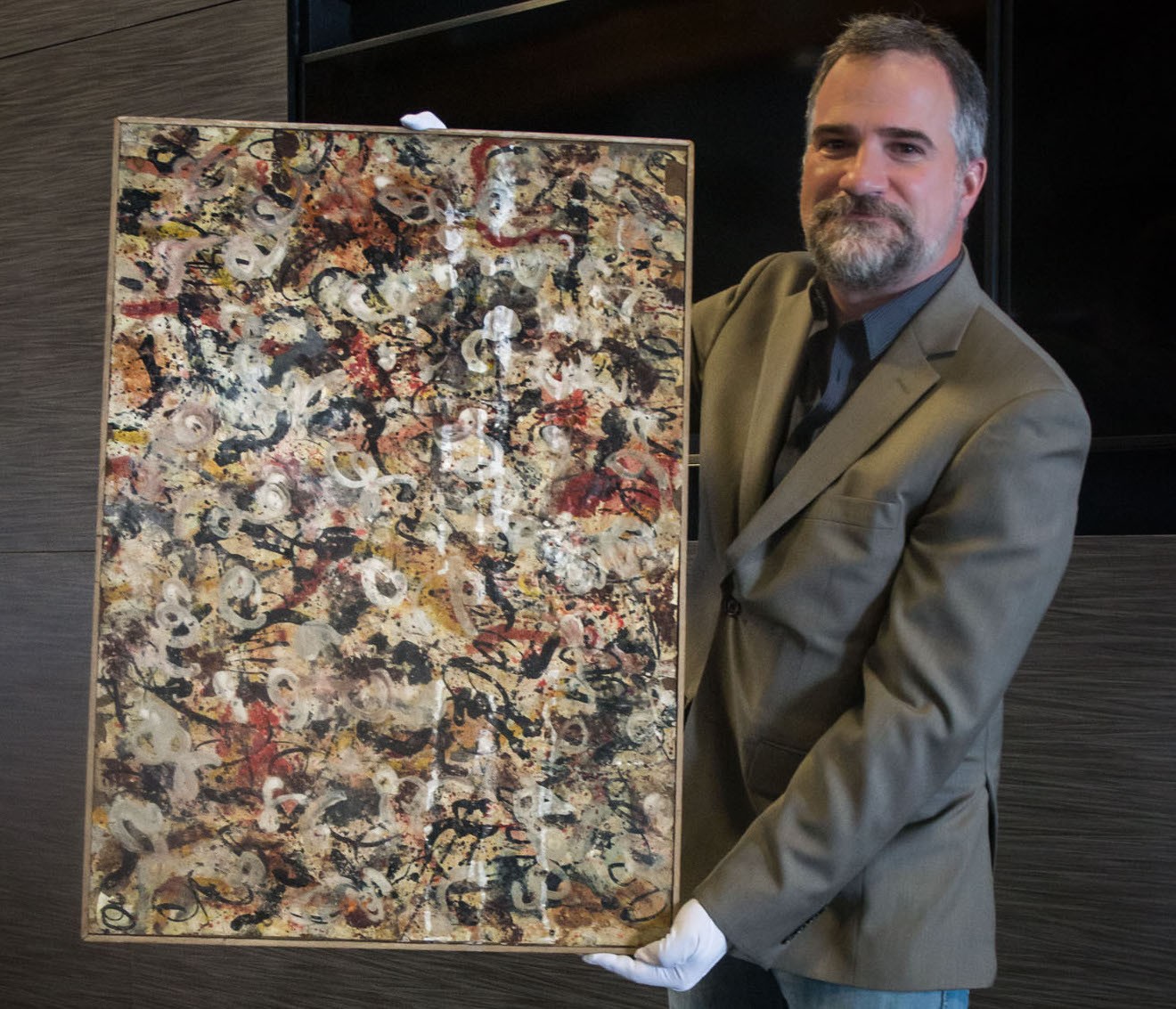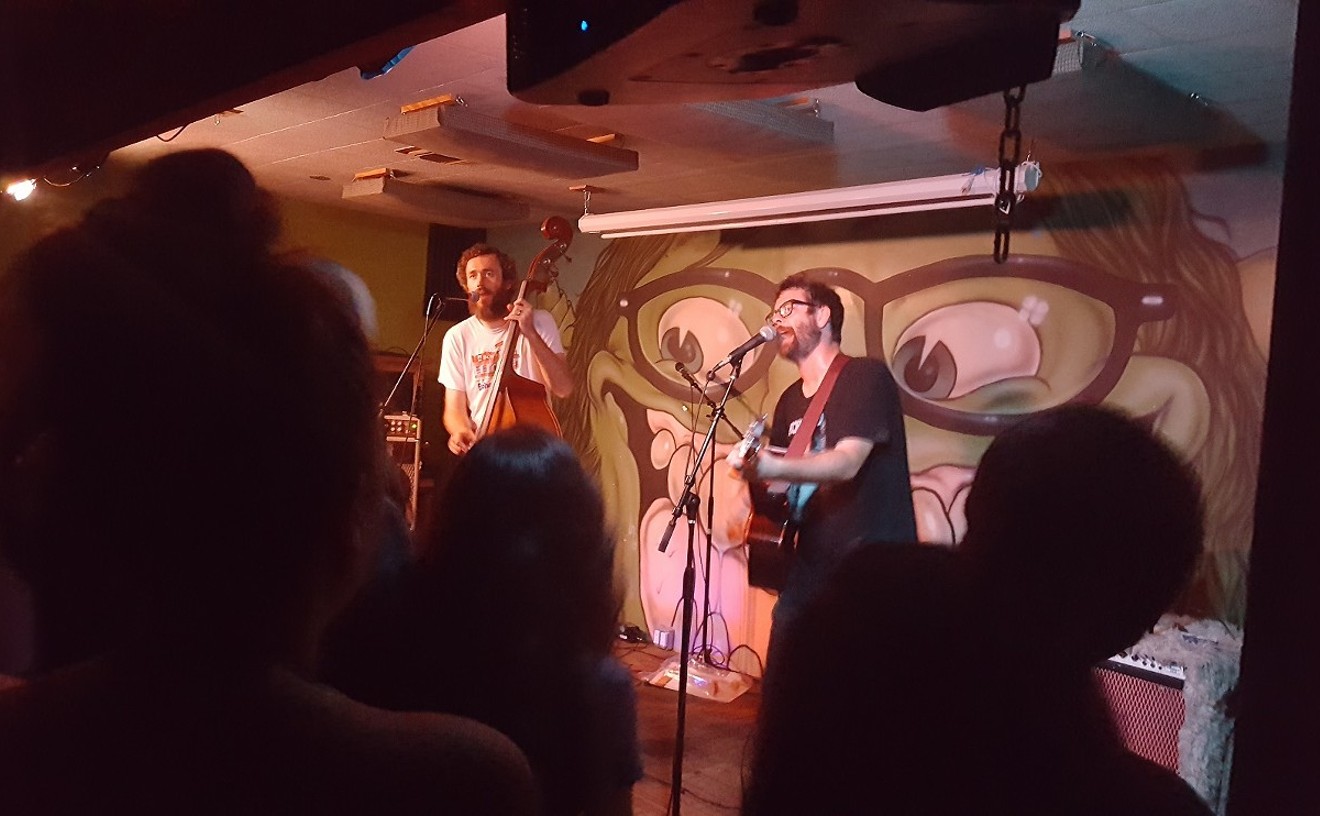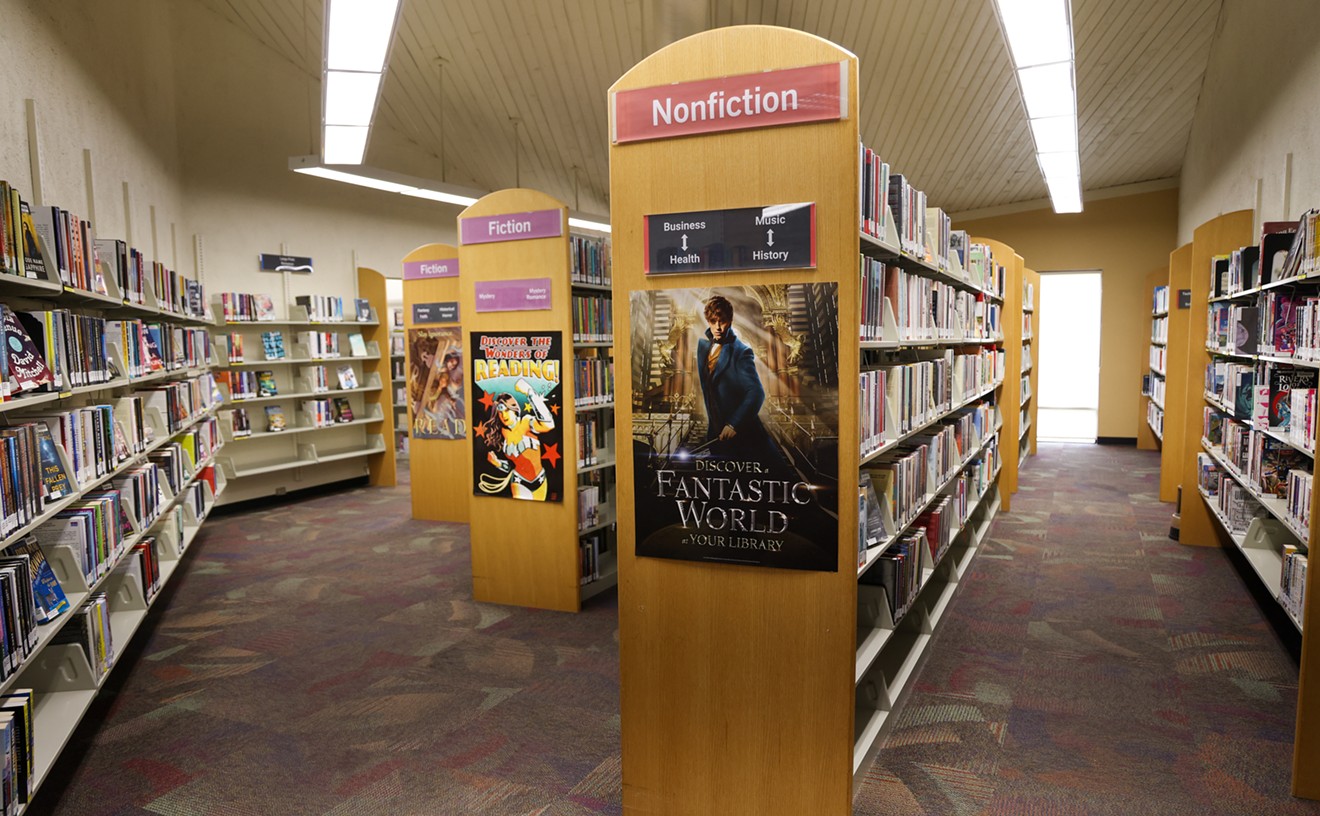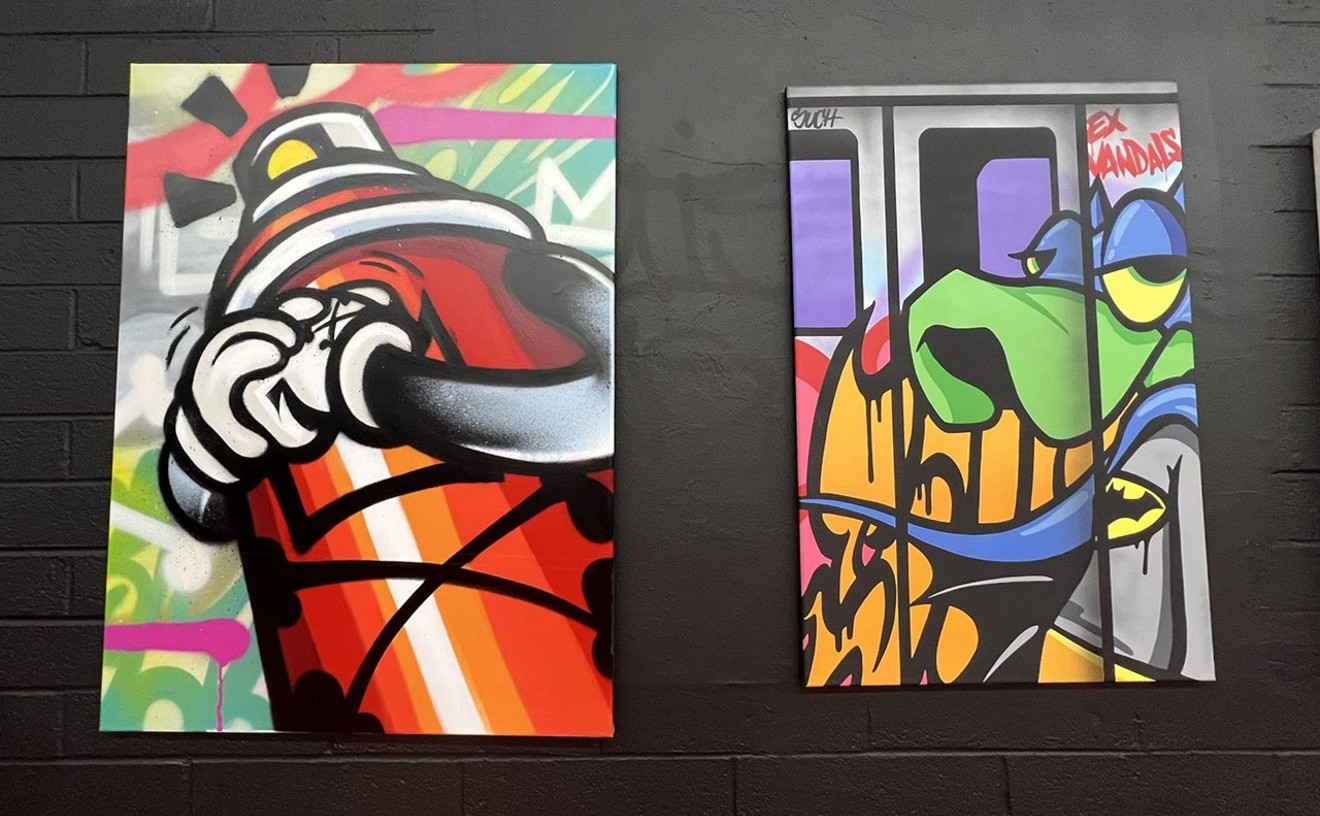Levine is owner and CEO for Scottsdale-based J. Levine Auction & Appraisal, which routinely auctions art, jewelry, guns, and other items for its clients.
The painting is one of several his firm uncovered in a Sun City garage during December of 2015, after being hired to auction contents of an estate that included items once belonging to New York art collector Jenifer Gordon Cosgriff, who died in 1993.
The piece Levine credits to Pollock is an untitled gouache in the abstract expressionist style. It measures 22 1/2 by 32 inches. It was created on paper, which is glued to a Masonite panel. The artist used mixed media, including enamel and water-based paints. Levine estimates its presale value is $10 to $15 million, adding that it would be higher if it could be authenticated as a Pollock painting.
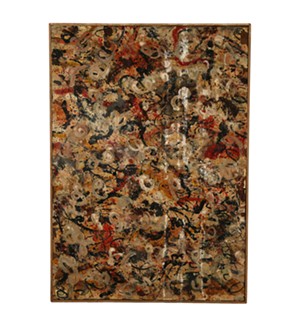
The painting J. Levine Auction & Appraisal attributes to Jackson Pollock.
Courtesy of J. Levine Auction & Appraisal
But that hasn’t stopped Levine from trying.
He hired a private investigator to help him research Gordon's connections to the New York arts scene, where Pollock was a staple during the 1940s. And he had a forensic scientist evaluate when the painting was created, based on the materials used. Forensics date the piece in the mid-20th century, Levine says.
"I've spent 200 hours researching the painting," he says. Levine estimates the research has cost about $50,000 out of his own pocket.
"I'm convinced it's a Jackson Pollock, but nobody will attest that it's by Jackson Pollock," Levine says. That's the case for Pollock works in general, he says, because of industry concerns about forgery and legal issues.
Levine isn't just certain that Pollock did the painting.
He's also got a theory about when it was created, based on findings by the experts he hired. "I believe this painting was one of Pollock's missing gouaches in his catalogue raisonné or from the period of 1945 to 1949," he says.
Levine contacted the Pollock-Krasner Foundation (named for Pollock and his widow) to ask whether they could help authenticate the painting. But the foundation has a general policy of not authenticating Pollock artwork.
Unfortunately, the painting has visible damage caused by moisture, heat, and smoke, Levine says. Rather than restoring the artwork, he's leaving that for the collector who purchases the piece. Levine estimates that restoration could cost $45,000 to $50,000.
Although it’s not relevant to Levine’s search for answers, it’s interesting to note that Pollock has Arizona connections. Born in Wyoming in 1912, Pollock was raised in California and Arizona, where Pollock attended the Monroe School. Today, the Monroe School building houses the Children’s Museum of Phoenix. Pollock was among the school’s best-known alumni.
The painting Levine attributes to Pollock is currently available through an online auction, but Levine is doing a live auction featuring the piece on Tuesday, June 20. He’s holding a free, public preview of the artwork from 4 to 7 p.m. on Monday, June 19, at the J. Levine auction house. In the meantime, the piece is being stored off-site, Levine says.
Correction: This post has been updated from its original version to clarify that the estate where the alleged Pollock painting was found included items from Jenifer Gordon Cosgriff, not Gordon Cosgriff.

